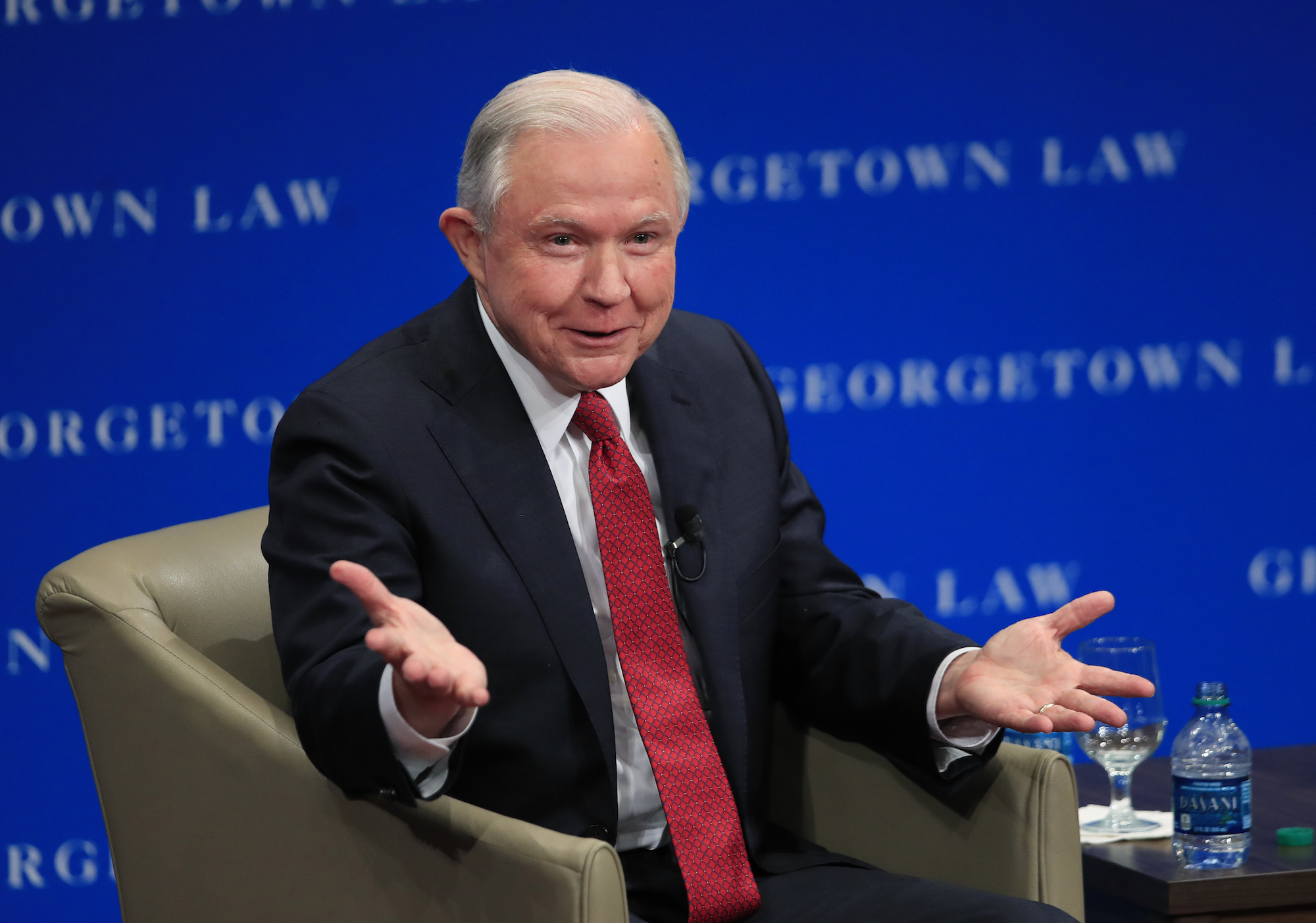Attorney General Jeff Sessions on Tuesday accused American college campuses of being echo chambers of “political correctness and homogeneous thought” and undermining free speech rights, at the same time defending President Donald Trump’s vociferous criticisms of NFL players’ protests over the weekend.
“Freedom of thought and speech on the American campus are under attack,” Sessions said during a speech to Georgetown Law School. “The American university was once the center of academic freedom – a place of robust debate, a forum for the competition of ideas. But it is transforming into … a shelter for fragile egos.”
Sessions also announced that the Justice Department is ramping up its efforts to protect free speech rights by filing a statement of interest in a campus free speech case this week. He said he expects to file more over the coming weeks and months.
Randy Barnett, the director of Georgetown’s Center for the Constitution, asked whether Trump’s recent attacks on NFL players – who knelt, sat, or locked arms during the national anthem last weekend in a wide display of protest against racial inequality and police brutality – could be considered to undermine the First Amendment protections Sessions touted in his speech. Sessions responded that Trump has free speech rights, too.
Trump had suggested in a speech last Friday that football teams should fire players who protest by kneeling for the anthem. He continued his criticisms via Twitter throughout the next four days, arguing that the issue “has nothing to do with race” and was instead about respect for the country.
"NFL must respect this!" he tweeted.
Trump "sends soldiers out every day to defend this country under the flag under the flag of the United States, under the national anthem and the unity that those symbols call on us to adhere to," Sessions said Tuesday.
Sessions continued: "I agree that it is a big mistake to protest in that fashion - it weakens the commitment we have to this nation that has provided us this freedom."
Sessions added that no player was subject to any prosecution as a result of the protests, but argued that by protesting in a provocative manner, the players were inviting condemnation upon themselves.
"They can expect to be condemned, and the president has the right to condemn them," he said. "And I would condemn their actions - not them as human beings - but there are many ways for these players, with all the assets they have, to express their political views other than in effect denigrating the symbols of our nation."
Sessions' arrival at Georgetown was met by protests from dozens of law students and faculty members, who gathered outside the law school on Tuesday. Some knelt and linked arms, echoing the NFL players' protests, and others held signs that read "Hate speech is not free speech" and "Sessions is afraid of questions."
Some of the protesters told media they had been guaranteed seats to Sessions' speech, but were later disinvited.
Sessions in his speech also railed against the fierce protests that have recently erupted following the invitation of controversial speakers - particularly at UC Berkeley, where administrators reportedly spent $800,000 on security for a free speech rally organized by the far-right speaker Milo Yiannopoulos.
"Protesters are now routinely shutting down speeches and debates across the country in an effort to silence voices that insufficiently conform with their views," Sessions said. "This permissive attitude toward the heckler's veto has spawned a cottage industry of protestors who have quickly learned that school administrators will capitulate to their demands."

